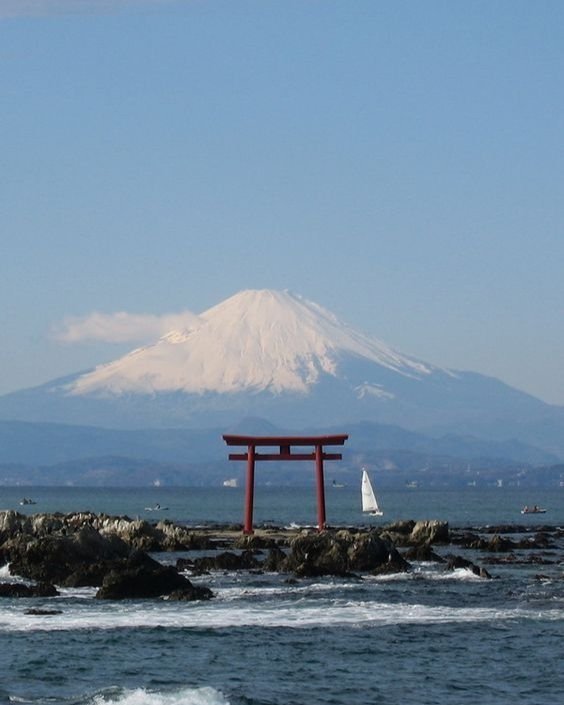Japan is Precious, Please DON’T TRASH IT
PC: Pinterest
This article has been brewing inside of me for quite some time now, so please excuse me if it comes out like word vomit. I’ll do my best to keep it organized, but it comes mixed with a lot of emotions, my own and that of my friends and relatives in Japan. As I’m sure you’re already aware, Japan has seen an insane uptick in tourism over the last five years. This isn’t like Paris or Tulum or any other well-visited city… Japan was largely unvisited until now, and this sudden boom in tourism has been hard to adjust to. Growing up, nobody from the outside talked about Japan let alone visited it, and I loved that we weren’t part of mainstream culture. I loved having something that felt like it just belonged to us. With a booming economy, entertaining media, and amazing food, the Japanese ecosystem thrived as is and there was no part of us that wanted to be westernized or join western pop culture.
Yes, it feels like we’ve been “discovered” a little, and people started to pick up on just how magical Japan is. And don’t get me wrong, that part alone is very nice. Cultures should be shared and it’s so nice that everyone has a warm association with Japan. There’s truly no place like it—how clean everything is, how kind everyone is, how functional the systems are, the food, the laughs, the drinks, the sights, the people, the attention to detail, the peace, the aesthetics… I mean I could go on… and on and on I could, because Japan has one of the most intricate cultures in the world. There are so many little details to how we do things and why we do them that way, but pretty much all of the tourists coming in do not (and couldn’t possibly, I’m not blaming them) know just how deep it goes.
In April, I revisited Japan after a four year hiatus and was taken aback and quite frankly, frustrated at the behavior of all of these tourists. This is not New York, this is not Milan, you do not behave in Japan the way you might in these other cities. You do not eat on trains, speak on trains, throw trash on the floor, toss groceries into the basket (place it gently in), be loud in any way (unless you’re at an izakaya, then go ahead), wear shoes in the fitting rooms, use an arrogant tone to service workers (ANYWHERE). Don’t walk around in yoga pants and a sports bra. Do not take photos of Geisha in Kyoto walking to work. As a matter of fact, stop taking so many tiktoks on public streets!! Again, this is not New York.
The thing about Japanese people is that 99.9 percent of them are too kind to correct you. They will smile and be silent for the most part (except those who have truly snapped at this point, kudos to you 😂). This makes tourists believe they can get away with anything in Japan, and that the people there are some of the most welcoming in the world. The truth is, we act welcoming because that’s just how Japanese people behave. It’s in our culture to mind our business in public and not speak on others. But when we gather at home all we talk about is how barbaric some of these people behave. What’s acceptable in western cultures and perhaps other asian cultures is often considered rude, dirty, and impolite in Japan. I, too, significantly adjust my behavior whenever I go home, and you must too.
Bring out the utmost respectful version of yourself when you visit. You are a guest, please be on your best, kindest behavior. Show respect to everything—not just people, but to food, to the space around you, and to animals. Don’t take up too much space—Japan is a densely populated country and being quiet and respectful of others around you is deeply rooted in the country’s DNA.
Remember that Japan kept its borders more or less shut for centuries for a reason, please don’t make them regret opening them up. Don’t do things that would make Japan close down popular photo spots due to tourists trashing the place… you are not monkeys, why are you behaving as such? Before you arrive, please do your research on proper behaviorism in Japan. No one expects you to learn everything, but we will see and appreciate effort more than anything.


